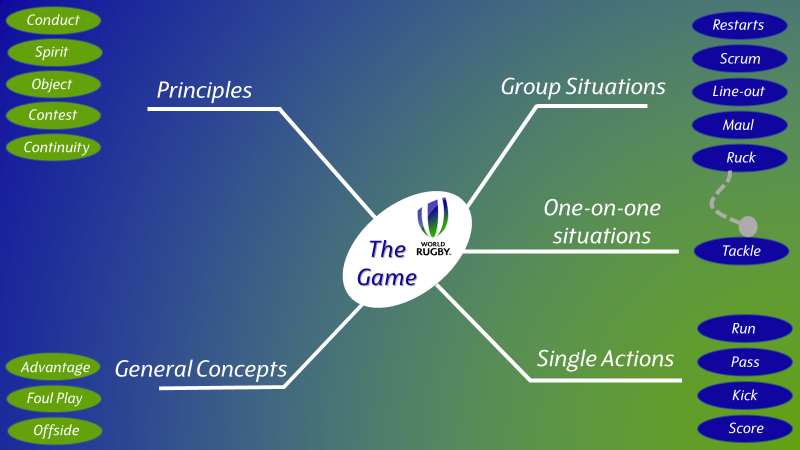Principles of Rugby
The basic principles of the game relate to playing and coaching, and to the creation and application of the laws.
Conduct
Players and referees must always uphold the code of conduct and combine control and discipline when they play.

Spirit
The game should be played both to the letter and within the spirit of the laws – it is the responsibility of everyone involved in the game to ensure this occurs.

Object of the Game
Two teams, each of fifteen or seven players, observing fair play, according to the Laws and in a sporting Spirit should, by carrying, passing, kicking and grounding the ball, score as many points as possible.
The wide variation of skills and physical requirements needed to play the game mean that there is an opportunity for individuals of every shape, size and ability to participate at all levels

Contest and continuity
The contest for possession of the ball is one of rugby’s key features. These contests occur throughout the game and in a number of different forms:
- in contact
- in general play
- when play is re-started at scrums, lineouts and kick-offs.

Summary
These principles are the the fundamentals on which the Game is based. They enable participants to identify clearly what makes rugby distinctive as a sport. The diagram below highlights how this relates to a Match Official.
